There’s a buzzword in tourism these days. It’s called farm tourism.
Republic Act No. 10816, otherwise known as the Farm Tourism Development Act, defines farm tourism as “the practice of attracting visitors and tourists to farm areas for production, educational and recreational purposes.” As a reason to visit, it is becoming increasingly popular in the Philippines.
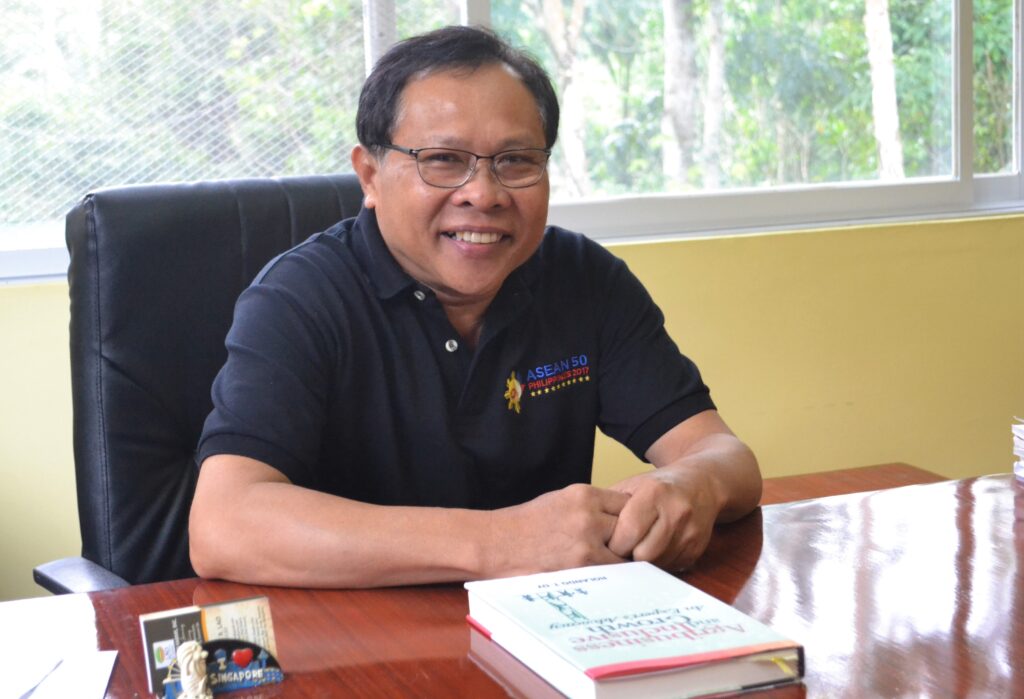
Any agriculture or fishery-based activity that brings people to be educated or trained on farming and related activities, or just provides a venue for outdoor recreation and family outings can be called farm tourism. “It ranges from very (sophisticated) tourist farms to very simple … farms,” said Senator Cynthia Villar, author of Act No. 10816. “They are the same thing; it’s about being creative.”
In Davao del Sur, one of the top tourism destinations when it comes to farming is the Lao Integrated Farm, Incorporated, located in barangay Eman of Bansalan. The farm is known for its coco sugar, organic farming, and crop diversification.
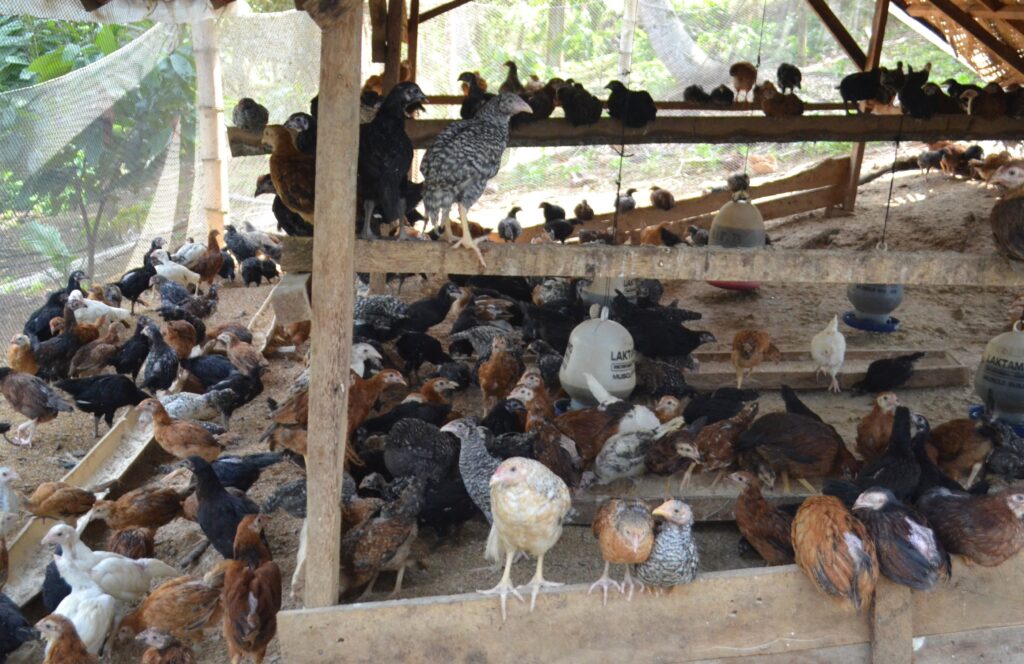
“My first love is farming,” admits Benjamin R. Lao, a former immigration officer in Davao City who owns the farm. It was understandable; his parents were both farmers and he grew up in a surrounding where people were planting rice, corn, and several other crops.
But Lao never thought it would come to this. He graduated from law school in 1985 with the intention of becoming a lawyer. But it all changed when he inherited the 5-hectare farm land from his parents in 1998.
Coconut were the only crops being grown. Every three months, he harvested from as low as 400 to as high as 600 nuts. It wasn’t encouraging enough so he visited the nearby farm, the Mindanao Baptist Rural Life Center (MBRLC) in barangay Kinuskusan, known for its sustainable farming schemes.
After attending a training, he brought with him some seeds of nitrogen-fixing species like Flemingia macrophylla, Desmodium rensonii and Indigofera anil which he planted in various parts of the farm. He also brought in some livestock like goats and swine; he used the manure as organic fertilizer.
The leaves from the leguminous shrubs that fell below the ground also became instant organic fertilizer for the coconut trees. Several months later, the coconut yields markedly increased to 15,000 nuts per quarter. “Some of my neighbors told me it was a miracle,” Lao says.
Although the money he made from copra was good, he wanted to earn more. After attending a seminar conducted by Philippine Coconut Authority (PCA), he thought of producing coconut sugar from the coconut toddy.
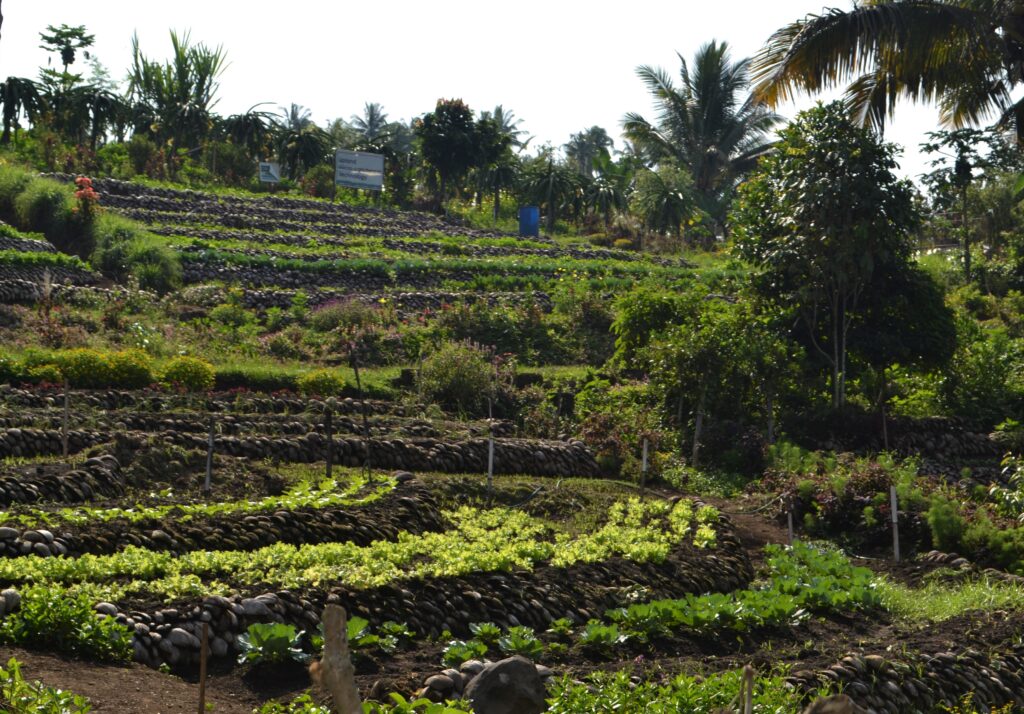
Lao learned from the Department of Science and Technology (DOST) that coconut toddy contains 12%-18% sugar in its natural form with important vitamins and amino acids. It is also rich in nutrients and high in potassium. Phosphorus, magnesium, sulfur, calcium and vitamin C.
“The production of coconut sugar is very simple,” he says. “It is just a natural process of heat evaporation to convert liquid sap to solid form of sugar granules. It requires no complicated and high-cost machineries or equipment nor a huge capital.”
What one thing about coconut sugar is that is all natural. That is why it is recommended to people with diabetes, a disease that afflicts more than 5 million Filipinos. “Coconut sugar has low glycemic index, a measure of blood sugar, thus good for diabetics and those having prostate problems,” Lao says. “It has also glutamic acid, the same ingredient that can be found in Viagra.”
In the beginning, he only sells the locally-produced coconut products inside his farm. Believing there was an untapped market for such products, he hired people and started producing other alternative sweeteners like coco honey and coco sap drinks that are used for desserts and other delicacies.
Lao later registered these products with the Department of Trade and Industry under the moniker Donna Belle – a combination of the names of his two daughters. He started distributing his products in some outlets in nearby areas and the cities of Davao, Digos, General Santos and Butuan. Outside of Mindanao, his coconut sugar is being sold in Cebu and Metro Manila.
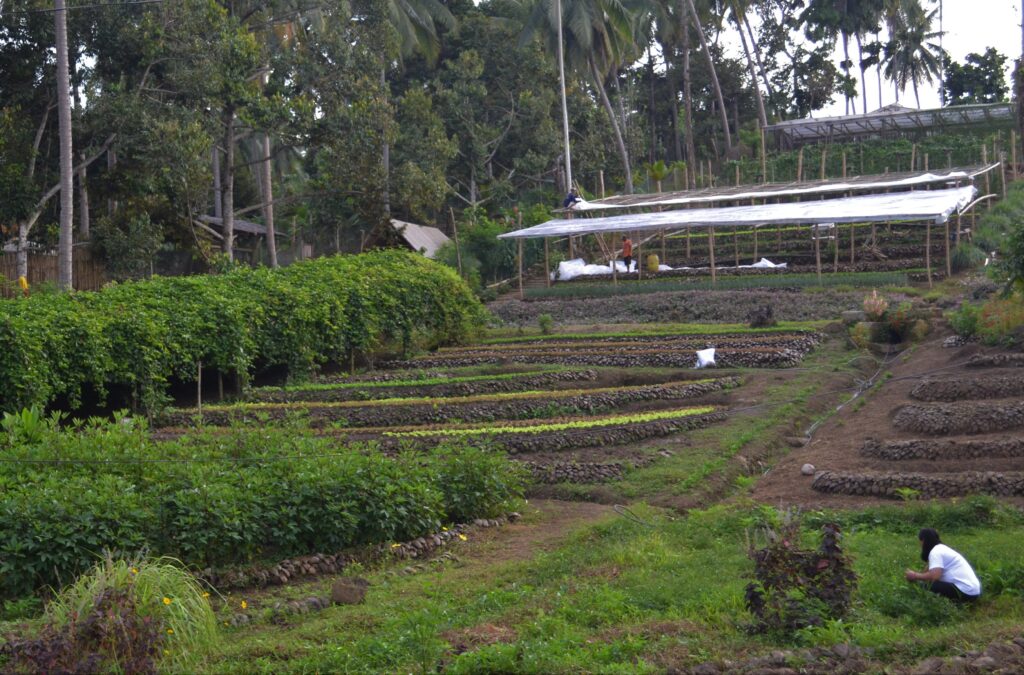
Due to the increasing demand for his products, he decided to incorporate Lao Integrated Farms Inc. In one of the trade fairs he attended, he met a buyer who was interested with coco sugar. So in 2009, he shipped 2.2 tons of coco sugar to the United States.
That was the beginning. Since then, Lao has been exporting his products not only to the US but also in the United Kingdom and Australia, among others. “My coconut sugar is guaranteed 100-percent free from chemicals,” he assures.
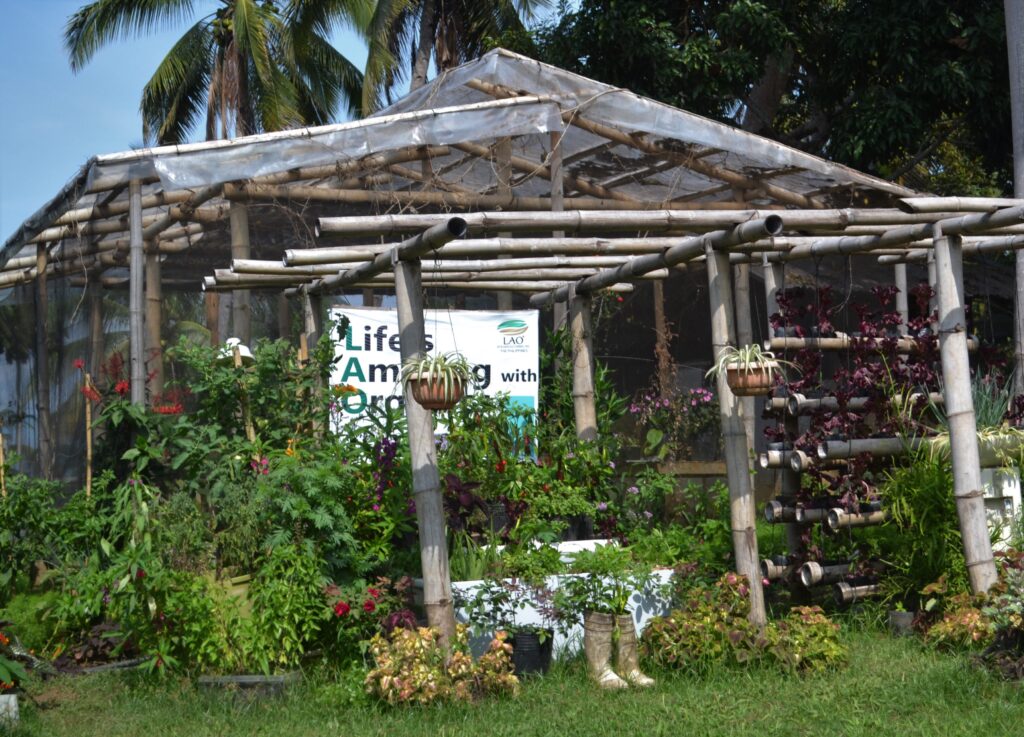
But it’s not only coconut sugar that is very popular abroad. Teriyaki all-dip sauce, another coconut-based product, is also a hit among foreign consumers. People who buy his products are assured that they are fit for human consumption as his farm has earned various local and international organic and safety certifications.
Today, 80% of his coconut products are for export. He credited this achievement to continued research. In fact, he was named by DOST as a magsasaka-siyentista. “As a farmer-scientist,” he says, “I was able to focus on researching coconut sap products. It took us eight months to study on how to make export-quality coconut syrup.”
Lao has gone a long, long way. He was working in Davao City as director of the Bureau of Immigration and Deportation when fate intervened. His mother called him to divide equally the 40 hectares of their land among the eight siblings as inheritance. “I am the fifth child but I was unanimously chosen to assign which portion of land should be given to each sibling,” he recalls.
For some unknown reasons, Lao selected the land that was so infertile that only cogon grass would thrive on it. His brothers and sisters never bothered to ask him his reasons; they were happy to get their own shares.
“My parents wanted me to be a lawyer,” he admits. “But I wanted to toil the land to produce food to feed my family and earn sustainable income.”
Lao is not only a coconut farmer; he is also an organic farmer. In his farm, you won’t see his farm workers using chemical pesticides. “I had a tragic experience with chemical pesticides when I was still a teenager while cultivating rice in our farm located in the neighboring barangay,” he reveals.
Instead, he recommends using Eman, an acronym for “epiktibo, mura at natural” (effective, cheap, and natural). “This is a concoction composed of fresh goats’ manure, kakawate, makabuhay, and hot pepper,” he says. “These are soaked together for 48 hours and after that the concoction is ready for use.”
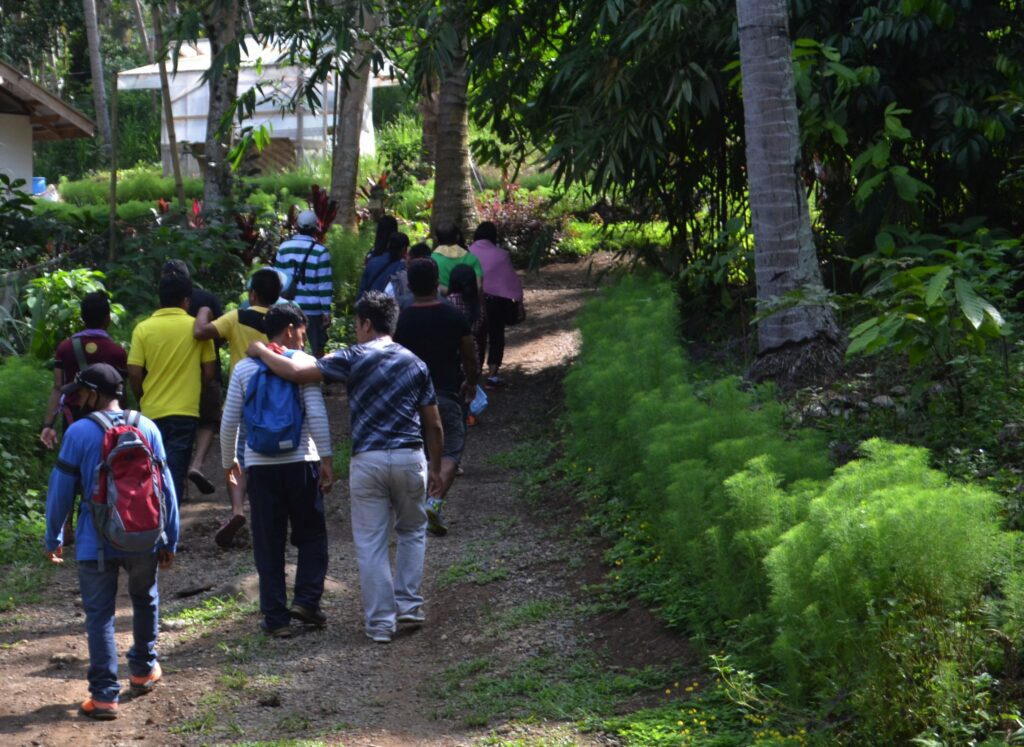
According to Lao, Eman is effective in repelling plant pests and diseases. “We are committed to help preserve our environment,” he points out. “We want to teach Filipino farmers through natural methods and that is by not using commercial fertilizers or pesticides.”
Lao also doesn’t inject his chickens with drugs for immunization. He told Department of Agriculture’s Noel T. Provido that he has concocted his own “natural antibiotics.” He uses mayana plant extract (60%) combined with malunggay (30%), turmeric (5%) and oregano (5%). A one-liter extract is fermented for 3-4 days and then mixed with molasses or one kilo of muscovado, which would dissolve into liquid for 3-5 days.
Every day, chickens are given two spoons of the concoction. “We have zero casualty of atay (new castle) disease among our chickens,” he says, adding that he calls these organically-raised chickens as EMAN, which stands for elegante at masayahing manok.
As a farmer himself, Lao believes that Filipino farmers need to know the basics of record keeping. “Simple accounting will help farmers compare the big difference between chemical-laden conventional farming and organic farming which cuts down cost in buying fertilizers and chemicals,” he said. “Reduced cost means additional income.”
To people who have been to his farm, they have described it as a haven. In fact, it is now one of the most-often visited farms in Davao Region. The Department of Tourism has recognized it as a farm tourism destination. People from all over the country come to the place to see how his farm works.
You don’t see only livestock (he stopped raising swine as the farm is now halal-certified), poultry, fruits, crops and vegetables but ornamentals as well. “It’s nice to see beautiful flowers underneath the trees,” Lao says. “In addition, the flowers serve as breeding areas for beneficial insects like spiders and dragonflies.”
Lao believes in adding value to a product. “Value adding is an important component in a farming system,” he explains. “For instance, if you have goats, you must know how to produce fresh milk and have other saleable products from the animals. In the case of coconut, don’t think only of copra because it is cheaper; you can always have another product to sell.”
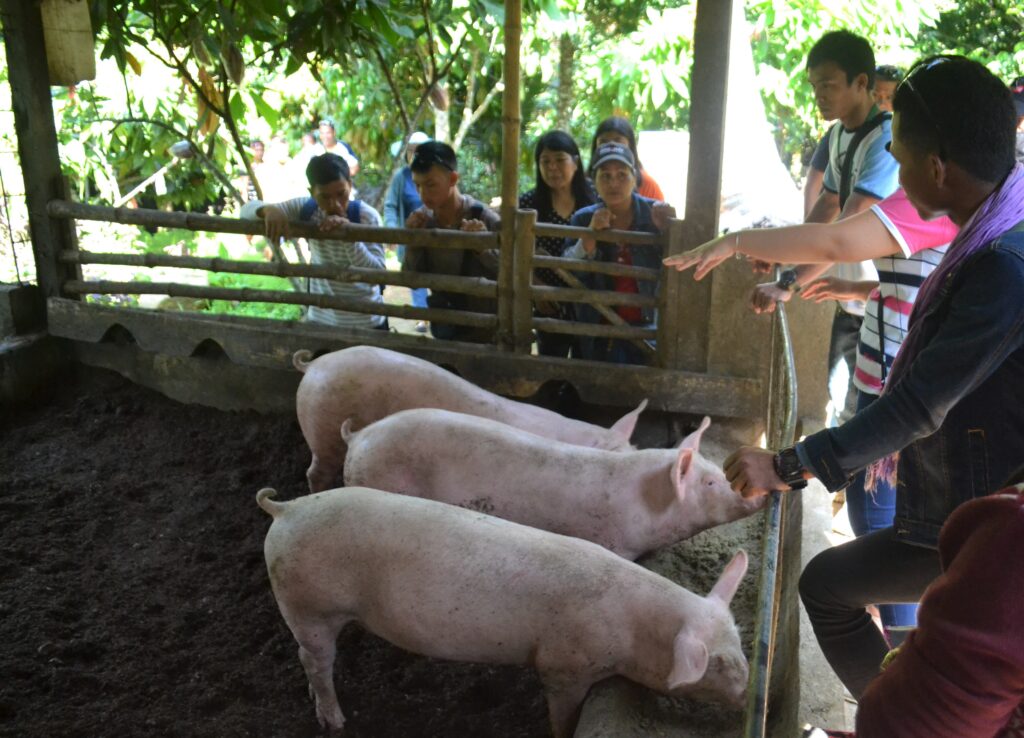
Aside from his coco-based major products, he also has ice cream using goat’s milk with flavors such as malunggay, turmeric, durian and soursop. He also incorporates his coconut sugar into a tea: mangosteen tea, malunggay tea, turmeric tea, and lemon grass tea.
His success went unnoticed. In fact, he received several recognitions from different award-giving bodies: Most Outstanding Coconut Farmer from the Department of Agriculture in 2008, Productivity Olympics National Winner in 2009 from the Department of Labor and Employment, Micro Entrepreneur of the Year Presidential Award in 2009, Business Excellence Award from the Bank of the Philippines in 2010, and Organic Farmer of the Year in 2011 from the Department of Agriculture.
Despite all these awards, Lao remains humble. “Even if I now have a higher income,” he says, “I still need to feel the ground beneath my feet. For me, success is measured by how many people you can help.”
It’s no wonder why people come flocking to his farm.

